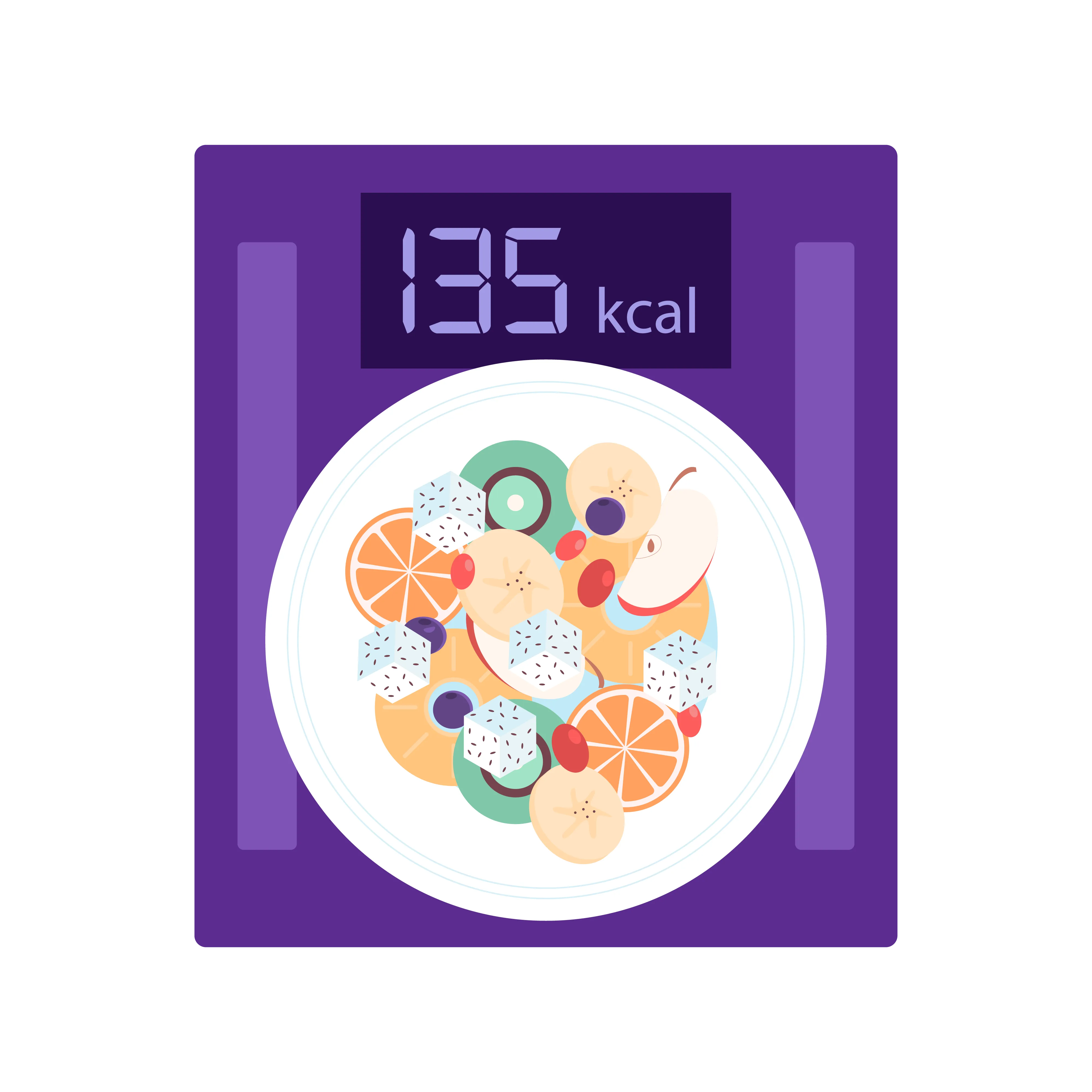Nutrition | 5 min read
What are Macronutrients and How Important are They for Your Health?
Medically reviewed by
Table of Content
Key Takeaways
- Macronutrients and micronutrients form the basis of a healthy diet
- Understand macronutrient ratio before including them in your diet
- Count macros and consume healthy foods to lead a disease-free lif
Nutrients required by the body in larger amounts are called macronutrients. These nutrients are essential for providing the body with energy. On the other hand, micronutrients are those required in smaller amounts. Both macronutrients and micronutrients are crucial to maintain good health. Macronutrients are of 3 main types, which are protein, carbohydrates and fats.
Macros not only provide energy, but also help boost your immune functions. All three types of macronutrients play different roles in maintaining overall health. On comparing the macronutrient ratio, it is seen that 1g of carbs provides only 4 calories. While 1g of protein also provides 4 calories, fats provide the maximum energy of 9 calories per gram. This is important information that can help you in calculating macros needed by your body.
To understand more about macronutrients and calculating macros for fat loss, read on.
Why are carbohydrates essential?
Carbohydrates provide the body with energy. These are also fuel sources as without these your body may not be able to function efficiently. In fact, this is the instant source of energy for your body. Be it for your brain, cells or muscles, all require adequate amounts of carbohydrates to function. When consumed, carbohydrates get converted to sugars and enters your bloodstream. In fact, it should make up around 45% to 65% of daily macro intake [1].
Carbs get stored in two forms such as glycogen in skeletal muscles and glycogen in the liver. It is this glycogen that gives energy during any physical activity. These glycogen reserves are refilled when you consume a diet rich in carbohydrates. Carbohydrates are available in complex and simple forms. Try including complex carbs in your diet and minimizing the consumption of simple carbs or sugars.
Some of the foods rich in complex carbs include the following:
- Potatoes
- Brown rice
- Legumes
- Vegetables
- Cereals
- Fruits
- Whole-grain foods
Complex carbs are rich in fiber and can keep you full for a long period. This is mainly because your body takes a longer time to break them down. Not just fiber, complex carbs also contain essential minerals and vitamins. They are known to lower your cholesterol levels as well.
Additional read: Tried and Tested Home Remedies To Control Sugar the Natural WayWhy are proteins called building blocks?
The body has around 20 amino acids and these are required to support normal function. However, the body doesn’t produce enough amino acids, which is why you need to eat foods rich in protein. This is among the reasons why it is estimated that about 10%-35% of your diet needs to contain protein-rich foods. You require proteins to build your nail, hair or any other tissues [2]. A major part of protein is stored in your muscular system and while they don’t provide your body with energy, proteins form the building blocks for various structures in your body.
Of the 20 amino acids your body requires to form proteins, only 11 are synthesized by your body. The remaining 9 amino acids, also called essential amino acids, cannot be produced by the body. Hence, you must include protein in your daily diet. There are two major types of proteins required by your body namely, complete and incomplete proteins.
Complete proteins provide all amino acids required by your body in adequate amounts. Different macronutrients examples rich in complete proteins include eggs, milk, meat, seafood, and poultry to name a few. Incomplete proteins do not contain all the amino acids required for your body, although they may have some. Most of the plant-based proteins like legumes, nuts and seeds fall under this category.
How can fats provide instant energy to your body?
Fats are essential macronutrients performing various vital functions. In fact, when your body goes into starvation mode, it is fats that provide instant energy to your body. It is essential to consume about 20%-35% of fats in your diet. Fats are essential to maintain your body weight and also improve your cardiovascular health. You require fats for better brain functioning as well.
There are three types of fats called saturated, unsaturated, and trans fats. Unsaturated fats are typically known as heart-healthy. Saturated fats are those found in dairy, animal-based food, and tropical oils. These should be eaten in moderation. Trans-fats are found in packaged foods and can cause heart ailments. Therefore, it is better to avoid their consumption altogether [3].
 How to maintain weight by calculating macros
How to maintain weight by calculating macros
It is necessary to do a macros count if you want to keep your weight in check. For losing weight, eat fewer calories and increase your protein intake so that you can be full for longer. If you are looking to maintain weight, maintain a healthy balance between the macronutrients.
Additional read: Intermittent Fasting for Weight Loss: What is it and How to Go About it?Now that you are aware of the importance of macros, it is essential to consume a wholesome nutritious diet. Understanding the macros required for your body is a smart approach to stay fit and healthy. Ensure your meals contain the right combination of macros and micros. If you require any assistance to count macros, do not hesitate to talk to the top nutrition experts on Bajaj Finserv Health. Book a consultation online within minutes and get a customized diet plan for a healthy life ahead.
References
- https://www.aipt.edu.au/articles/2017/01/what-are-macronutrients-what-you-need-know
- https://www.mdanderson.org/publications/focused-on-health/what-are-macronutrients-.h15-1593780.html
- https://avitahealth.org/health-library/macronutrients-a-simple-guide-to-macros/
- https://fit-flavors.com/blogs/nutrition/everything-you-need-to-know-about-macronutrients
- https://www.runtastic.com/blog/en/what-are-macronutrients/
- https://www.afpafitness.com/blog/what-are-macronutrients-everything-you-need-to-know
- https://www.evergreen-life.co.uk/health-and-wellbeing/macronutrients-everything-you-need-to-know
- https://www.verywellfit.com/macronutrients-2242006
- https://www.serenaloves.com/blogs/wellness-blog/what-are-macronutrients-everything-you-need-to-know
Disclaimer
Please note that this article is solely meant for informational purposes and Bajaj Finserv Health Limited (“BFHL”) does not shoulder any responsibility of the views/advice/information expressed/given by the writer/reviewer/originator. This article should not be considered as a substitute for any medical advice, diagnosis or treatment. Always consult with your trusted physician/qualified healthcare professional to evaluate your medical condition. The above article has been reviewed by a qualified doctor and BFHL is not responsible for any damages for any information or services provided by any third party.





